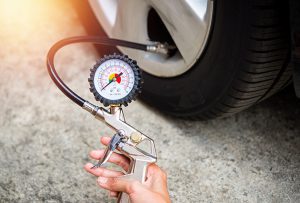It’s surprisingly simple to save money by adopting smarter and more fuel-efficient driving techniques. With the potential to save up to one-third on your fuel costs, here’s eight ways to make your taxi driving more economical.
- Under pressure: With 20% of your car’s fuel burned by overcoming rolling resistance, simply making sure that your tyre pressures are accurate will save you money. Check tyres weekly using a decent tyre pressure gauge that cost as little as £10.
- Lose that weight: An easy way to save fuel is by reducing your car’s weight. We’re all guilty of storing stuff we don’t need in the boot, so simply take out anything that isn’t essential.
- Don’t drag: Aerodynamic drag means you burn more fuel to maintain the same speed, so remove the unused roof rack and keep your car’s windows closed.
- Order of service: Having your car serviced regularly will increase its value when it’s time to sell it, but also keeps it running most efficiently, making every penny count.
- Drive off promptly: With no need to let modern cars idle for ages to warm up, simply keep the revs down until you’re ready to go.
- Smoothly does it: Big savings come from driving smoothly, being gentle on the throttle and reducing braking. By not following the car in front too closely, easing off the throttle whenever you can rather than braking and then accelerating your way through traffic, taking your foot off the throttle when going downhill and allowing your speed to drop a little when you’re going uphill, you’ll soon notice the difference.
- Turn it off: Your car’s air-conditioning accounts for up to 5% of fuel consumption, so if you don’t really need it, turn it off. Also, if sitting in traffic, turning the engine off can make a big difference.
- Telematics: This easy-to-fit equipment records information about the journeys you make, providing potential savings on your insurance premiums and possibly reducing your vehicle’s fuel and maintenance bills.




